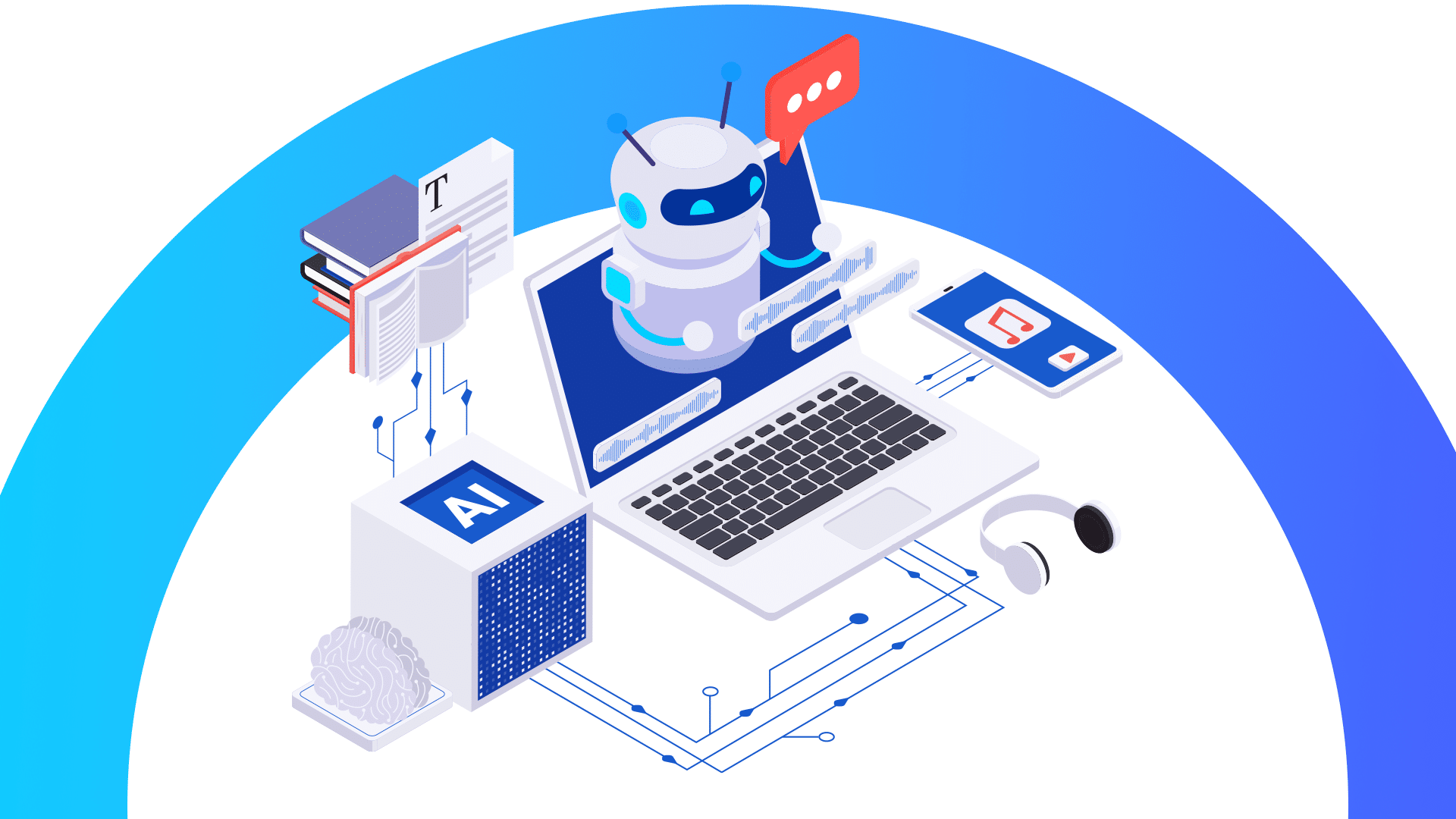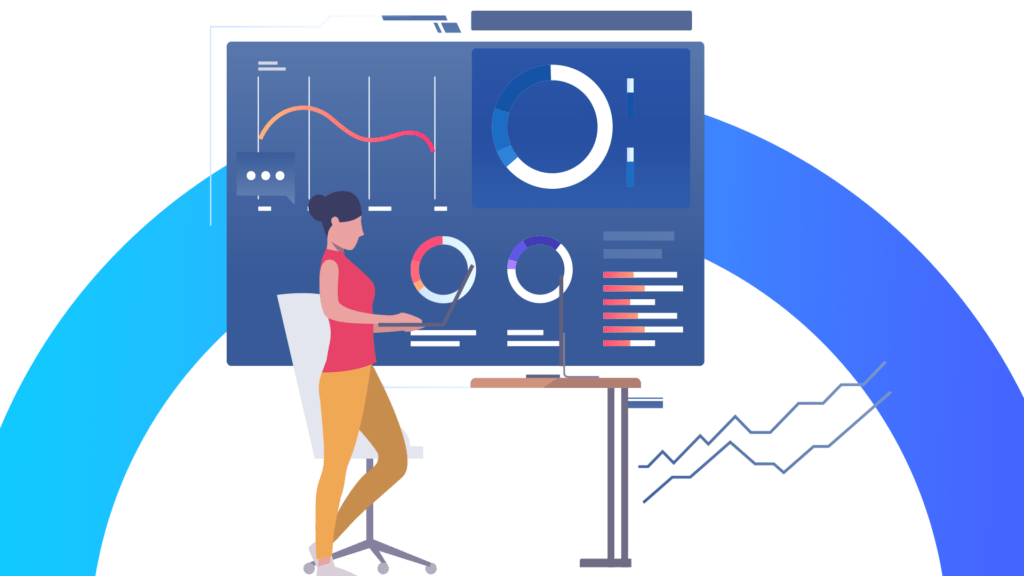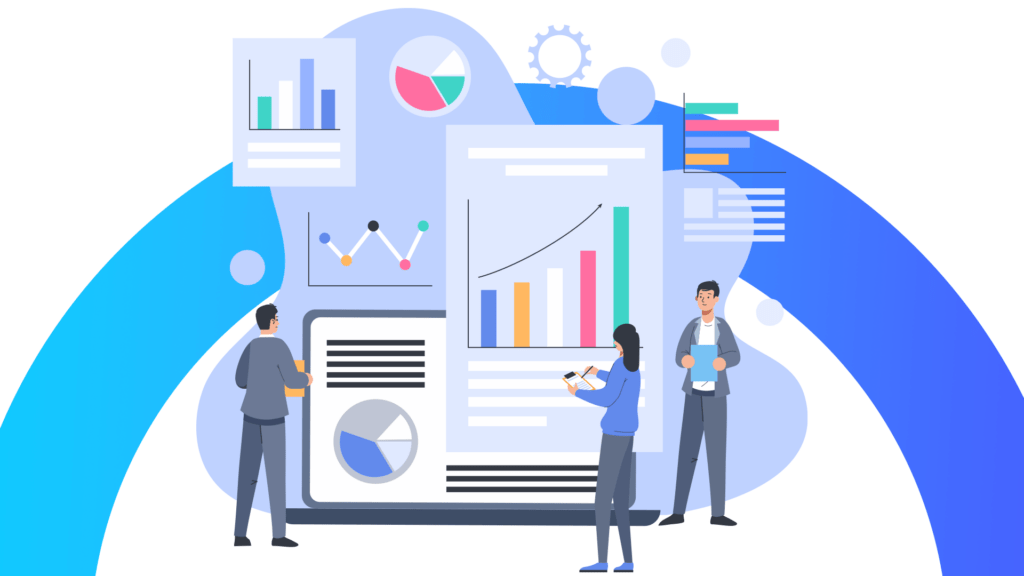Data democratization breaks down barriers by giving everyone in a company easy access to data. When employees can effortlessly understand and use data, they make smarter decisions faster, driving innovation and keeping the business competitive. Learn how your business can run smarter with data democratization, empowering your human resources.
Understanding data democratization
To become data-driven has been the moon landing for most companies. Those still struggling to incorporate data into their business culture are suffering and falling behind their competitors. Data is a crucial resource in the current digital world and is changing how we live and work, as well as how we interact with one another. For quite a while, data was only accessible only to those with the technical expertise and resources to collect, process, and analyze it. This resulted in a widened difference between those who had access to data and those who did not. This led to an unequal access to resources and opportunities.

To break these barriers, democratizing data is imperative. It allows individuals, businesses, and communities to utilize data to fuel informed decision-making, innovation, and even positive social impact. But connecting and using company data isn’t a simple task. Even digital natives like Airbnb, Netflix, and Uber have had to work hard since having a data scientist in every room is not possible.
To be data-driven, organizations must embrace a fresh management approach that empowers not only data experts but all employees within their organizations. They should be able to work with data regardless of their exposure or familiarity with it. This change can be accomplished by creating what is referred to as a data-democratic society. Its benefits include but are not restricted to greater speed and agility, as well as quicker decisions at every level of the company.
So, what exactly is data democratization?
Data democratization allows everybody access to data without any gatekeepers in place that create bottlenecks in the path of gaining data. From a business perspective, data democratization is providing data access to every person in the company. This means that every team member can use and access data to make informed and better decisions.
Data democratization is not only about making data accessible but also about making it comprehensible and useful. It’s about providing users with access to the tools and abilities required to comprehend and interpret data efficaciously. The aim is to let anyone use data at any moment to make decisions without obstacles to accessing or understanding.
Through self-service analytics, data democratization allows non-technical employees to utilize data to get insights as they make decisions and study data patterns. This isn’t limited to structured data; it also covers dark and unstructured data. It is also about developing a culture of data literacy in communities and organizations. This encourages people to make decisions and to drive forward innovation under the wing of data.
Why is data democratization critical for your business?
Companies that lag behind in providing their employees sufficient access to imperative data or don’t educate them on its uses are faced with numerous issues. These hurdles are caused by:
Data silos
Data is siloed across the organization and stored in various enterprise applications, data warehouses, and data lakes, making it nearly impossible for users to determine where they can find the data they require to perform their tasks.
Controlled access to data
Controlling data access is seen as essential from a governance POV. However, when only IT personnel can access data, it creates obstructions. In such a scenario, even if the employee locates the data they require and want to access, they must coordinate with IT for permissions. This significantly slows down the time to get insight.
Insufficient tools
Most data intelligence tools are not specifically designed for self-service analytics. Many times, only IT can access data or data intelligence instruments. Business analysts have to go to IT for the data they require instead of having the capability to access data in a manner that is essential for their job.
These inefficiencies are a result of lacking access to data. Data democratization solves this problem by allowing all users in the company access to the data they require to perform their tasks. It removes any “middleman” of the IT department by giving employees secure access to self-service analytics that help them make data-driven decisions.
Steps to democratizing your data
So, how do we implement data democratization? What will the process look like? The best methods to ensure data democratization include offering training and support, setting clear guidelines, and supplying tools for data analysis. Data democratized effectively is put in the hands of the people who can utilize it best. It empowers them to make educated decisions that will benefit the company.
Here’s a quick overview that guides you on the preferred mode of data democratization that meets the particular needs of your business:
Check your data and the compliance environment
The business needs to ask where data is stored, whether in the cloud, on-premise, or a combination of both. Furthermore, what software and technologies are being used to store, capture, and analyze data? Some businesses use cloud-native IT/OT convergence platforms to manage their disparate data. This allows for quick and easy access to real-time data, enabling enhanced decision-making based on actionable insights.
Assess how well-versed in data your employees are
Depending on your business’s needs, this could require something as easy as a test or as elaborate as an assessment by a trusted third-party consultant. But even before that, businesses need to mentally prepare themselves thinking of data like a data analyst would. This would require proper training and education as detailed below.
Evaluate potential data solutions
Research potential business intelligence tools using modern IoT, machine learning, and AI technologies according to your organization’s needs. This should be done keeping in mind the budget, scalability, customer service reputation, and market prominence of each potential tool.
Invest in the right training and continuous education
When you’ve rolled out a new data toolset for democratization, don’t leave your team in the dark. Training and regular check-ins are as crucial as the initial onboarding process. This ensures a good ROI on your investment and that you reap the complete advantages of data democratization.
The way ahead
It is still early to determine the entire impact of data democratization across enterprises. However, one thing is for sure: It will revolutionize how businesses make decisions by allowing employees at all ranks to get access to insights from the data their organizations collect. With the right investments in data infrastructure, governance, and culture, along with the proper data management tools, data democratization can transform the fabric of any organization.
Don’t want your business to lag in implementing data democratization? Speak to our experts and get solid solutions customized to your business needs.




